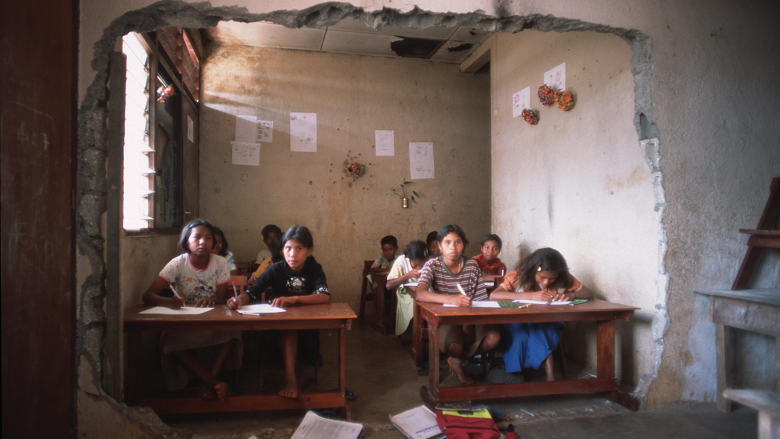Two billion people now live in countries where development outcomes are affected by fragility, conflict, and violence. By 2030, 46% of the global poor could live in fragile and conflict-affected situations. Fragility and conflict can cross national borders, and the consequences of conflict, such as forced displacement, further hinder the capacity of countries and regions to find their path out of poverty.
The World Bank is ramping up its response to the challenges posed by fragility and conflict. The International Development Association (IDA), the World Bank’s fund for the world’s poorest countries, expects to double funding to Bank operations in fragile and conflict-affected states to exceed $14 billion. Understanding effective ways to help those struggling in these situations is critical for achieving the Bank’s twin goals to end extreme poverty and promote shared prosperity.
The World Bank is also engaging with partners on how to improve development interventions in these contexts. Bridging the academic and policy worlds, on December 5, 2016, the Bank and the Fletcher School of Law and Diplomacy at Tufts University convened a conference on the nexus between fragility, state legitimacy, and service delivery.
The conference, “The Role of Citizens in Service Delivery and Building State Legitimacy in Fragile and Conflict-Affected Situations,” brought together about 80 representatives from governments of fragile and conflict-affected states, research institutions, and the international development community to present research and share experiences and lessons learned from ongoing development projects in fragile, conflict-affected, and violent situations.


